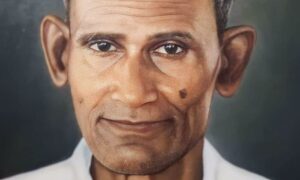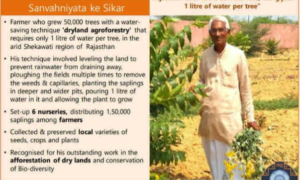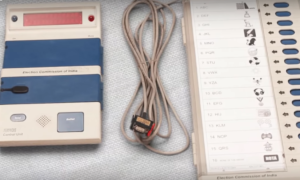The mirage of free internet

We have to find a way that free internet can be provided without allowing the service provider to interfere in access to the websites.
 The Telecom Regulatory Authority of India (TRAI) has sought people’s input on net neutrality. The issue is whether Internet Service Providers (ISPs) may be permitted to provide incentives- or disincentives to the consumer to access particular websites.
The Telecom Regulatory Authority of India (TRAI) has sought people’s input on net neutrality. The issue is whether Internet Service Providers (ISPs) may be permitted to provide incentives- or disincentives to the consumer to access particular websites.
For example, some months ago IT Major Facebook had put forth a proposal called “Free Basics” in collaboration with Reliance Communications to provide free internet services to the people for accessing limited numbers of websites.
One dimension of this proposal was fee delivery. The other dimension was of discarding net neutrality. At present internet service providers like Airtel and Reliance merely provide access to the net.
They do not decide which sites will be accessed by the user. The Facebook proposal enabled the provider to decide which websites will be provided with free access and which will be charged.
This meant that the service provider would determine what content the user will access. The provision of free internet was positive of this proposal while interference in the access to websites was a negative.
The Reliance proposal would have provided free access to a limited number of sites. The customer would have to pay for accessing additional sites.
This meant that Reliance would guide the user in deciding which sites to access and which to avoid. It was like the newspaper vendor deciding which newspaper the customer will read.
The mind of the people will be pushed into a particular direction as desired by the newspaper vendor or Reliance. There have been many instances of service providers slowing down access to certain sites.
French service provider Orange reached a deal with Google, in which Google paid for the traffic incurred on the Orange network. American Company Netflix reached an arrangement with service provider Comcast to improve the quality of its service to Netflix clients.
Such prioritization of traffic looks innocent but it lays the principle that a service provider can goad the consumer in a particular direction.
In due course, it was possible for the service provider to slow down or block certain sites critical of the Government or other organization.
Information was power in today’s world and the freedom of information was at stake. It must be reported that Chile, Netherlands and Slovenia have already enacted laws directing that service providers will make no such interference.
Recently a United States Circuit Court which is equal to our High Courts has upheld this principle. At the same time providing free access to the internet for the large numbers of consumers is equally desirable.
We have to find a way that free internet can be provided without allowing the service provider to interfere in access to the websites. This is best done by progressive pricing.
The Municipalities provide free water at the stand post on the street corner but charge for piped water supplied to the home. The Municipality does not discriminate in the type of water provided at the two locations.
The price of electricity is less for small consumers and is increased as consumption rises. The Electricity Board does not supply different qualities of electricity to the different consumers.
The resolve of Reliance to provide free internet service to the poor would be welcome if they provided free service of, say, 1 MB data per month and charged monies thereafter.
Such free access would provide internet access to the people and also not hit at net neutrality. But Reliance was disguising this free service by seeking power to interfere with the access of the websites.
TRAI must make rules that ensure that service providers do not interfere with access to the website. It may impose “Access Deficit Charges” upon such providers that do not serve the masses.
Such a charge was collected from telephone providers that did not serve the rural areas and the money was paid to BSNL for providing services in rural areas.
Similar charges may be imposed on internet service providers till spread of internet services takes place. In this way, we would be able to provide free access to the internet to the masses without compromising on free access to the websites.
To jettison, free access for providing free internet to the masses would be jumping from the frying pan into the fire.
The argument in favour of allowing service providers to manipulate access to websites is that competition will force the providers to provide free access.
But that assumes that the customer was aware of the value of free access to the net. That was not the case. Competition between liquor companies has not led the companies to offer non-alcoholic drinks.
Competition between politicians has not led them to abstain from booth capturing. The fact is that the common man has to be first provided information about the negative aspects of internet manipulation, liquor or booth capturing.
He may, if at all, demand freedom from these negatives if he was sufficiently evolved. This was called “market failure” in economics. It was the task of the Government to regulate the markets where such failures occur.
The Government was the custodian of people’s welfare. Free Basics was a lure by Zuckerberg to hook hapless new entrants into the profit making designs of Facebook just as tea companies provided free cups of tea to hook the people into tea drinking.
Reports indicate that about 70,000 inputs have been submitted to TRAI by the people in response to it seeking people’s views on the matter.
Reportedly most inputs are in favour of strictly maintaining net neutrality, that is, an ISP may implement any pricing model as long as they do not interfere with the selection of websites.
The ISP may charge lower fees for slower speeds and higher fees for higher speed as long as the speed remains the same for all the websites. The mischief starts when speed is linked to particular websites.
In fact, there is a need to go much farther. The role of internet in the society in the coming times will be similar to that of the role of education today.
The Government spends huge amounts of money to provide free education to the people. The principle is that the benefits to the society from the people becoming educated will be huge.
The same principle should be applied to the internet. The Government must bear the cost of providing free internet to the small users by making free wifi available in villages and slums.

Dr. Bharat Jhunjhunwala is a well-known columnist. He was formerly Professor of Economics at IIM Bengaluru. He can be reached at phone: 85278-29777












































